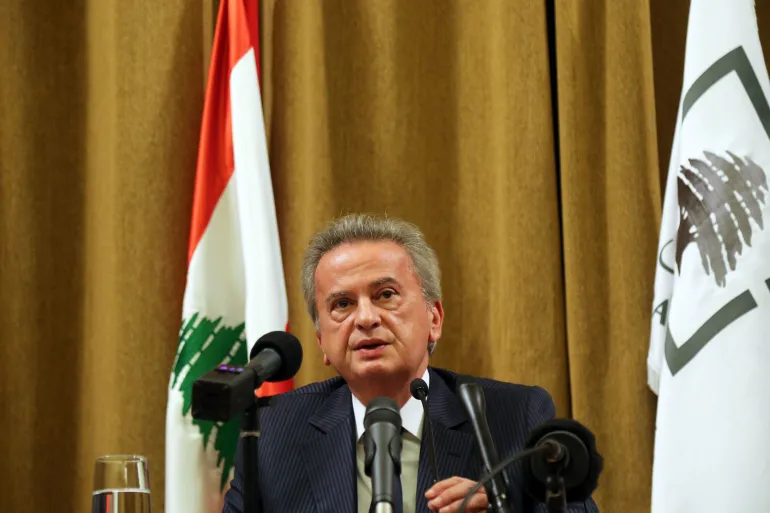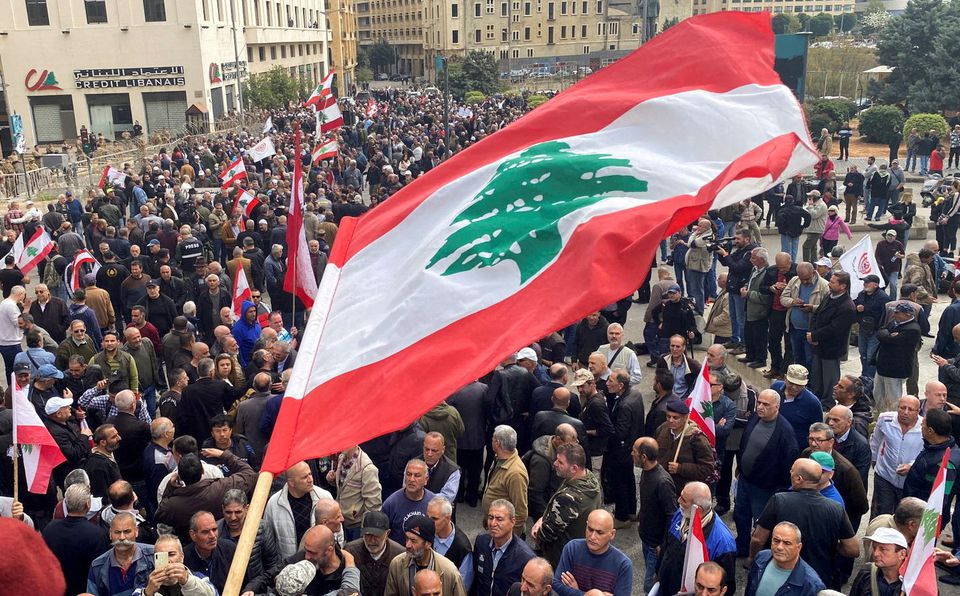Lebanon, the Middle Eastern country is likely to be included in the Financial Action Task Force grey list as the intergovernmental organization has found the conflict-ridden country, mired in terror financing and money laundering practices. This comes a couple of days after Lebanon’s Central Bank head had been accused of embezzlement of public funds which is being scrutinized by three European countries. Terror financing in Lebanon is of no surprise as it is a niche for Hezbollah, a terrorist organization.

Figure1 Image Source: Bloomberg
What is FATF?
Financial Action Task Force (FATF) is a financial crime watchdog, founded in 1989 on the sidelines of the G7 summit held in Paris, aiming at tackling the malady of money laundering. The most important objective is to set standards and foster the implementation of legal, regulatory, and operational steps for preventing money laundering, terrorist financing, and other problems which plague the international financial system. Since the origin of the organization, its aim remained more or less the same.
FATF has given 40 recommendations which are considered globally as the benchmark in anti-money laundering. In October 2001, in the context of the 9/11 terrorist attack by Al- Qaeda, FATF declared a new set of 9 special recommendations on terror financing. Both the 40 recommendations and 9 special recommendations are designed to be implemented nationally through law-making and other legally compliant measures.
FATF Black List and Grey List
Countries that don’t abide by the FATF’s regulatory standards may be placed on the FATF blacklist or the FATF grey list. The blacklist is officially called the “Call for Action”-list and the grey list is formally called the “Other monitored jurisdictions” list.
Countries on the blacklist are the ones that fail to counter money laundering and terror financing activities. In this regard, FATF calls on all the members to apply enhanced due diligence, a type of customer due diligence that provides surveillance of business partnerships and underscores the risk that cannot be intercepted by regular customer due diligence measures.
The FATF grey list comprises the countries which are under increased monitoring. After being declared on the grey list, the country works with the watchdog to deal with the inadequacies in their governments to block money laundering, terrorist financing, and proliferation financing.
Scenario in Lebanon
Lebanon’s anticipated entry into the grey list has accentuated the country in financial turmoil since 2019. The value of its currency has plunged to an all-time low. The poverty-ridden economy is struggling to sign a deal with the International Monetary Fund. This will impede capital flows and affect businesses in the country, and credit ratings, and will tarnish the global image. This has intensified the already disrupted banking system.

Figure 2 Image source: Reuters
The multi-religious country is partially abiding by various categories, including anti-money laundering, ambiguity in ownership of firms, etc. The Middle East, and North African branches of the Financial Action Task Force analyzed the status of the Lebanese economy, the result of which shows that Lebanon is liable to be included in the grey list according to the score.
The dire situation in Lebanon is the culmination of various factors. One of the major causes of this condition can be attributed to Hezbollah which is a terrorist organization for the world but a political and militia organization in Lebanon. Illicit finance has become ubiquitous in the country. According to the Foundation for Defense of Democracies, Hezbollah is a channel for money laundering schemes that fund Hezbollah and its heinous activities, generating billions of dollars per annum for the group. Hezbollah backed by Iran and other militia rebels gives monetary assistance for proxy wars in war-torn countries like Syria and Yemen.











